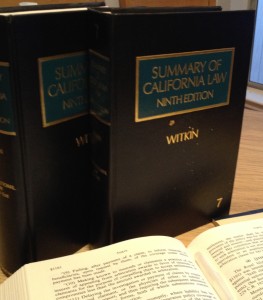More Defenses to Legal Malpractice Suits
In the law, a “defense” is a fact or situation which may reduce or eliminate a defendant’s liability for allegedly wrongful conduct. Defenses exist to most causes of action, and legal malpractice is no exception.
Today, we take a look at some additional defenses which a defendant attorney may claim or attempt to rely on in a legal malpractice action:
1. DESTRUCTION OF EVIDENCE. Intentional destruction of evidence (also called “spoliation”) by one party to a lawsuit may entitle the other party to obtain sanctions or jury instructions ordering the jury to assume certain conduct or facts adverse to the party who destroyed the relevant evidence. These remedies are available in legal malpractice actions, and can be claimed by attorney defendants in cases where the plaintiff client (or third party) intentionally destroyed evidence relating to the case.
2. UNCLEAN HANDS. The legal doctrine of “unclean hands” is also a recognized defense to a malpractice action. “Unclean hands” is a principle which states that, in appropriate circumstances, a wrongdoer cannot recover damages for certain kinds of claims. Where the plaintiff in a transactional malpractice action has also committed misconduct relating to the transaction at issue, the attorney defendant may be able to claim the client’s “unclean hands” should prevent recovery on the legal malpractice claim. This is a facts-and-circumstances decision for the court, however, and not something clients should attempt to evaluate without the assistance of experienced legal counsel.
3. PERJURY. A client who commits perjury in a litigation matter, on the advice of his or her counsel, cannot subsequently sue that counsel for legal malpractice on account of the perjury. This is, in part, because the attorney’s advice to engage in perjury is something the client should have known was wrong.
4. RES JUDICATA. “Res Judicata” is a legal term meaning “a thing which has already been decided” – essentially, it’s a holding that a legal action or lawsuit is barred by a pre-existing judgment. “Res judicata” exists to prevent re-litigation or duplicate litigation of legal claims or issues.
Other defenses also exist, and may be raised by defendant attorneys in legal malpractice actions. Even these examples illustrate the importance of obtaining qualified legal counsel to prosecute and handle legal malpractice claims. Few non-lawyers have the legal or technical skills required to address these legal defenses (or the other legal issues presented by a malpractice claim). If you believe you have a malpractice (or any other) claim against an attorney, seek experienced legal help immediately.
***
Disclaimer: Legal malpractice is a complicated topic, and articles like this touch only on basic issues. The details of a legal malpractice claim, and the applicable defenses, are individualized, fact-specific, and complicated. THIS ARTICLE IS FOR INFORMATIONAL PURPOSES ONLY, AND DOES NOT CONSTITUTE LEGAL ADVICE. Your rights and experiences may vary. Never use an article (or any online source) to evaluate your legal claims. Always speak with an experienced lawyer promptly to obtain a personalized evaluation of your claims, possible damages, and options.
















